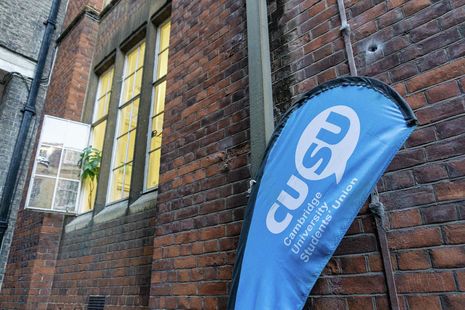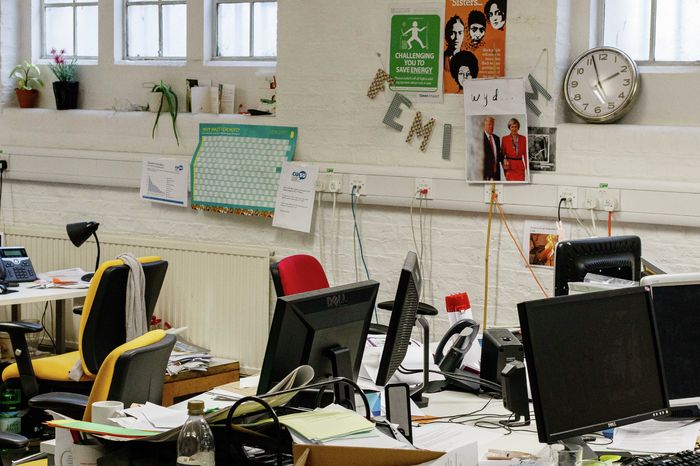Who’s Who?: Meet the 2020 Cambridge SU Presidential candidates
Five Candidates will be competing for the role of undergraduate president, compared to two last year

It’s that time of the year again. Yesterday saw campaigning begin for the first year of the new ‘Cambridge Student Union’ (SU), which was previously two separate bodies: CUSU and the GU.
This year, there will be two co-presidents of the SU, one for undergraduates and one for postgraduates. There are five candidates running for the undergraduate presidential role, the highest number in the last two years, with two candidates last year, and three in 2018. In contrast, two candidates are competing for the graduate presidential role, a decrease from three last year and the year before that.
In total, 17 students are competing for the eight full-time sabbatical officer roles, which run for 54 weeks and are paid positions, as well as for the University Councillor, this election season,. Voting opens this Monday, 2nd March, and will close at 5pm on Thursday, 5th March.
Alongside the two co-presidential roles, candidates will be competing for six other sabbatical officer roles, including separate undergraduate and postgraduate roles for Access, Education and Participation.
Out of the six non-presidential sabbatical roles, five – both undergraduate and postgraduate Access, Education and Participation, BME officer, Welfare & Community Officer, Disabled Student’s Officer – will be uncontested.
The role of Women’s Officer is as popular as the undergraduate President, with five students competing for it.
There will also be a vote on the sabbatical role of University Councillor. This position is not a full-time one and is being contested by two candidates this year.
Varsity spoke to the presidential candidates about what their campaigns are focused on.
Matt Alderton, a third year historian at Magdalene, is likely to be preferred by students who feel disassociated from CUSU, especially as a result of the collegiate system. Alderton’s manifesto begins with a memorable alliterative, “Devolve and Depoliticise”, which strongly asserts the central points of his campaign.
Alderton pledges to increase the powers of the J/MCRs “by changing the voting structure of Council, and reducing the pay of the SU executive.” Alderton told Varsity that “[his] campaign focuses on reforming the ineffective and unrepresentative nature of the present SU by depoliticising it and devolving powers to the J/MCRs.”
Also a third year historian, but this time at Robinson, Ben Margolis has made the biggest variety of pledges in his manifesto, from pursuing a fossil fuel- and arms-free university, to limiting rent increases to inflation level.
Margolis told Varsity that he is most focused on his education policy which “comes as an overall package to improve Cambridge education for all students- two vital aspects of that are pursuing a week 5 reading week to reduce workloads, and implementing a staff appointment safeguarding framework across colleges that puts the safety of students first.”
Henry Wright, a third year computer-science student at Homerton, has a catchy and varied manifesto. Under the three pledges used as headings, “do more”, “listen better”, and “talk less”, Wright promises to reform sexual harassment policies by working with JCRs. As well as on a college level, Wright pledges to work with ARU Students’ Union to launch an anonymous portal to better understand incidents of all types of abuse that go on in and around Cambridge.
Wright’s ingenious hashtag “#SwipeWright”, emulating dating app Tinder’s “swipe right” approval, takes centre stage of his manifesto. Wright pledges to create a new website to make navigating the SU clearer and to make it clear what services the SU provide. His concise and punchy manifesto is sure to echo his promises of clarity.
Second year HSPS student at Girton, Rusty Smith, told Varsity: “It’s time for a change.” Smith’s campaign is focused on the “great opportunity to revitalise the Union”, following the recent joining of the undergraduate and postgraduate unions. “The new SU has to be much more visible to students, and the best way to do that is to bring in an innovative, entrepreneurial spirit.”
Smith’s manifesto sets his proposed policies into three clear sections: Access, Communication, and Accountability. Under these subheadings, a clear vision to run a “large-scale re-brand and marketing campaign” prevails, with multiple pledges mentioning advertising, marketing, and visibility. If successful, Smith will take a year out from his studies to serve as president.
Perhaps the joker of the pack is first year historian, Amira Nandhla, who told Varsity that she “decided to run for a bet”. Her manifesto, with no photos or details of past experience, is a sole list of 19 pledges, including in first place, “Abolish CUSU”, and in second place, “Focus on student issues.” Alongside these, Nandhla demands to “Nationalise Mainsbury’s and Van of Life” and that “RAG blind date is a legally binding contract and pairs are obligated to get married.”
Nandhla said that “essentially this entire campaign is a way of surveying the student body of Cambridge in order to see how engaged they actually are with CUSU and if they care at all.” If successful in her campaign, Nandhla said she would likely continue with her degree at the same time as the full-time, paid presidential role, exhibiting her level of commitment to the role.
Alderton, Smith, and Wright all have previous presidential experience. Alderton, with the most, has served as Vice-President of Magdalene JCR and President of the University’s History society. Wright has also served as Vice-President, on his JCR at Homerton. Smith has served as the Co-President of the University’s Advertising and Marketing society.
Margolis and Smith have both served as faculty board representatives of the History faculty. Overall, Margolis taken the most innovative action over his time at Cambridge, being the core organiser for both the Robinson Living Wage and Cut the Rent campaigns.
Both of the candidates running for the postgraduate presidential role are PhD candidates. Aastha Dahal has just completed her Viva for her PhD in Criminology at St Edmund’s. In her manifesto, Dahal says “Student welfare is the core philosophy guiding my platform”. Dahal is aiming to foster financial stability for graduate students, including mandatory coverage of visa fees and NHS surcharges.
Dahal’s manifesto is clear and direct, with her policies all structurally connected to one another. Dahal told Varsity it’s impossible to pick a single main policy, however her main focus is student mental health “especially as the university is faced with a mental health crisis among its graduate students.” As well as focusing on graduate students, Dahal wants to ensure knowledge-sharing between the SU, J/MCRs and different student groups, such as those involved in Decolonisation, Demilitarisation, and Divestment campaigns.
Luisa A. Deragon Garcia is also competing for the graduate presidential role. Deragon is a fourth year PhD student in Biological Sciences at Girton. Deragon is also driven by mental health issues in her campaign. The most important policy for her is determining clear rights and responsibilities for students and supervisors.
Deragon’s manifesto is emotive and passionate, referencing the personal issues she has had with supervisors. Given this, Deragon pledges to “help create a healthy work/social life balance… [and] Identifying and understanding current, prevailing issues graduate students face.” She told Varsity that “I’m not saying I’ll solve them, but I promise to fight for students’ rights as hard as I did for my PhD.”
Dahal, who is a lawyer by training, has a huge amount of experience, including two graduate degrees at Cambridge. At the University, Dahal was Vice-President of St Edmund’s, as is now a Graduate Union employee. As well as this, Dahal headed an NGO with over 500 students representing all law schools in Nepal.
Deragon has experience working as the Admissions and Outreach Officer, and is currently part of the IT & Marketing team for Shaping Horizons – Summit & Action Programme, an initiative that gathered young leaders and world leaders to discuss issues related to science, policy and innovation. As well as this, Deragon mentions the personal experience she has had with university services, including the International Student Office, the Counselling Service, and the Disability Resource Centre, as she herself is dyslexic.
Cambridge-SU elections will continue using the Single Transferable Vote system, following that of CUSU elections previously.
Re-open Nominations (RON) will also be a candidate in all elections.
The full manifestos of each candidate were published yesterday morning on the Cambridge SU website.
A referendum to vote on merging the separate undergraduate and postgraduate unions together took place in Michaelmas 2019, which saw 2,272 votes in favour of the motion.
CUSU elections last year saw hot competition as all roles were contested, with the role of Disabled Students’ Officer seeing competition for the first time since its creation.
Presidential candidates Edward Parker Humphreys and Shadab Ahmed channelled their soft power to charm potential voters - with Parker Humphreys rolling out a Mean Girls-themed version of ‘Thank you, next’ and Ahmed serenading the public with a rendition of Niall Horan’s ‘Slow Hands’, titled ‘Safe Hands’ for the extra security oomph.
Last year’s hustings saw intense contestation between the GU Presidential candidates on graduate students’ sense of belonging with CUSU and the possibility of increasing the number of graduate students.
Competition for the role of Education Officer was one of the fiercest competition among the sabbatical roles, with candidates Howard Chae and Ali Hyde emphasising what sets them apart from each other during hustings, demonstrating their distinct approaches to the role.
Howard Chae is a member of the Varsity team but has been removed from all of Varsity’s communication channels for the duration of the campaign.
 News / Judge Business School advisor resigns over Epstein and Andrew links18 February 2026
News / Judge Business School advisor resigns over Epstein and Andrew links18 February 2026 News / Hundreds of Cambridge academics demand vote on fate of vet course20 February 2026
News / Hundreds of Cambridge academics demand vote on fate of vet course20 February 2026 News / Petition demands University reverse decision on vegan menu20 February 2026
News / Petition demands University reverse decision on vegan menu20 February 2026 News / CUCA members attend Reform rally in London20 February 2026
News / CUCA members attend Reform rally in London20 February 2026 News / Gov grants £36m to Cambridge supercomputer17 February 2026
News / Gov grants £36m to Cambridge supercomputer17 February 2026











